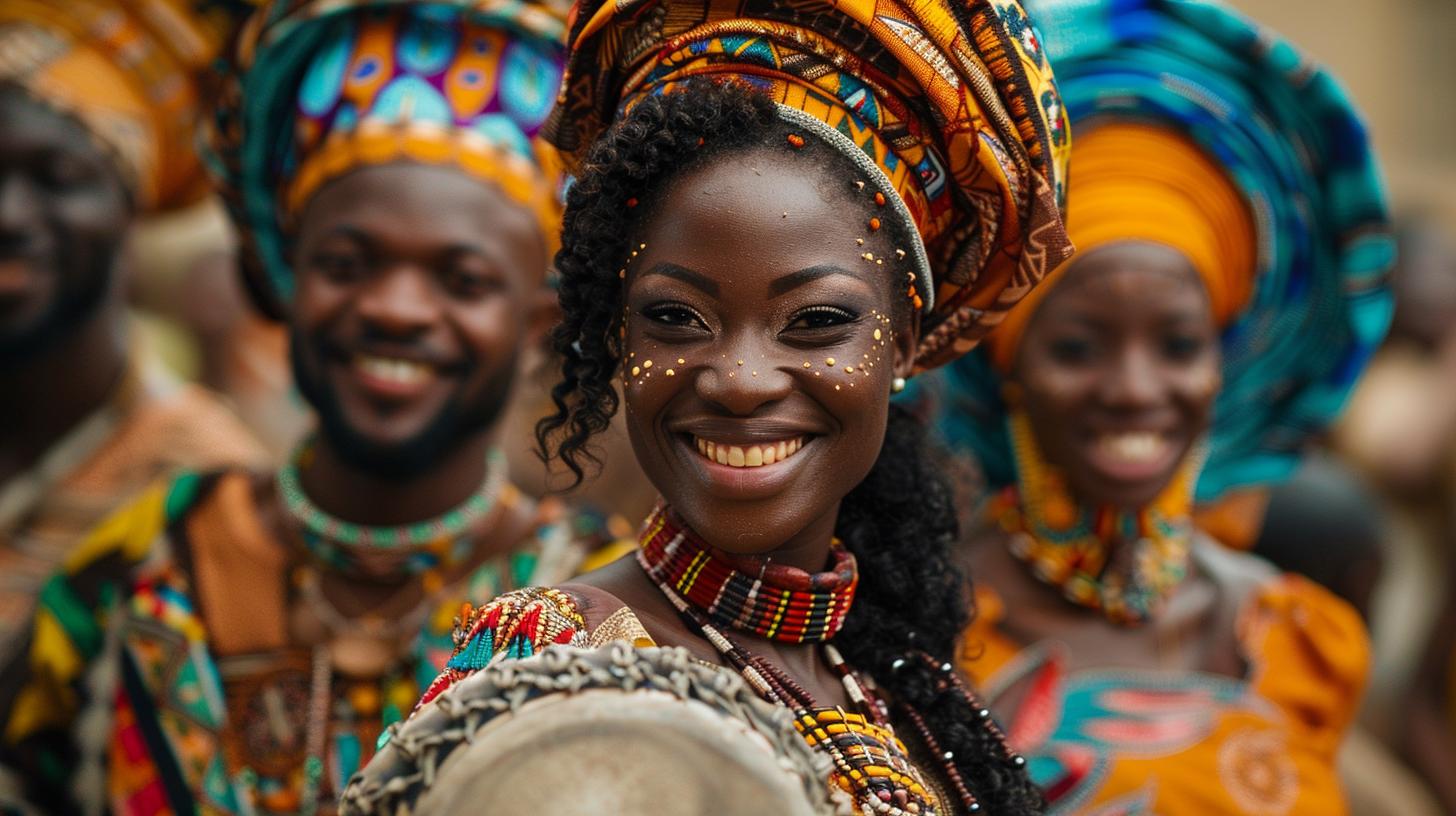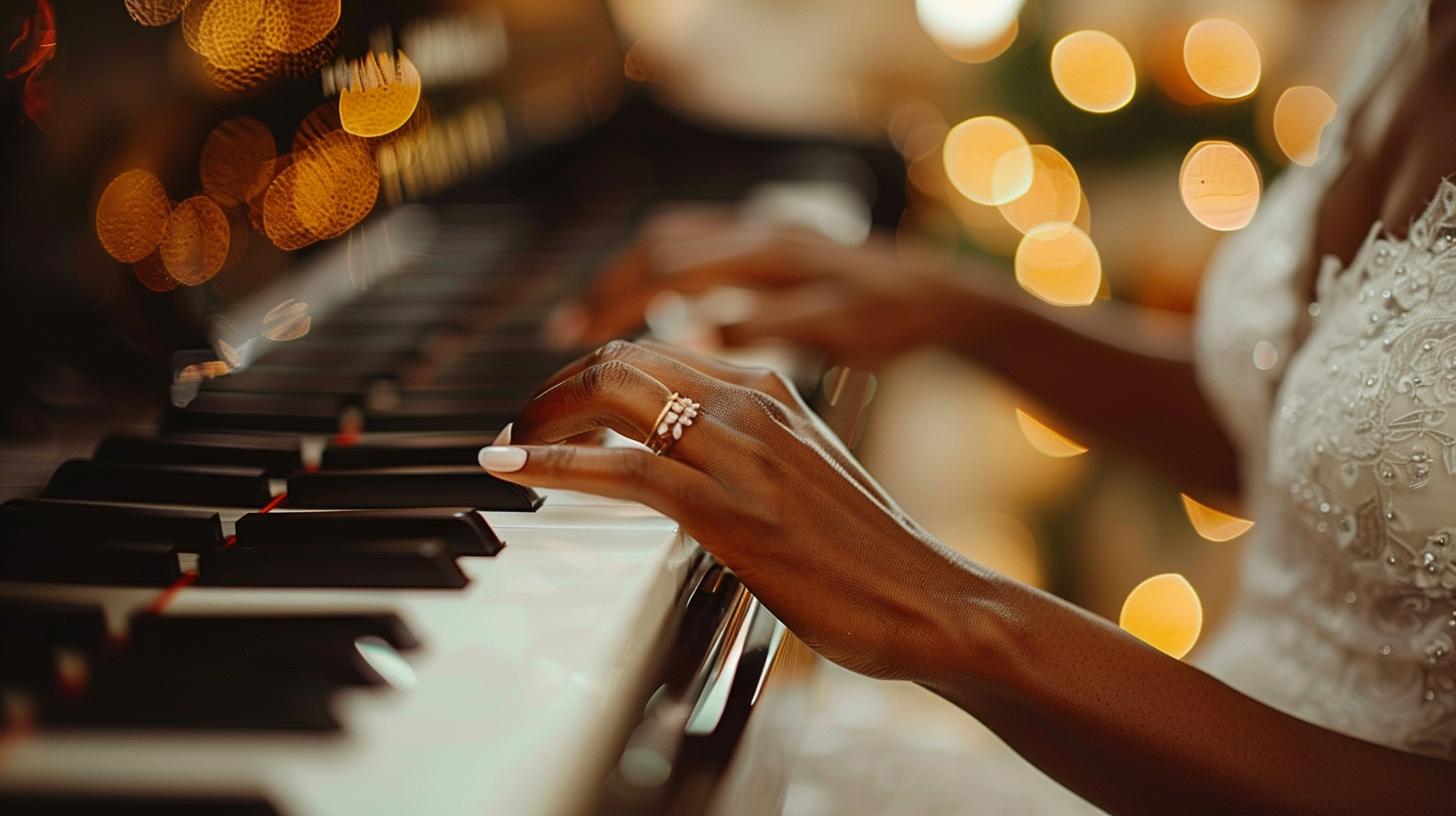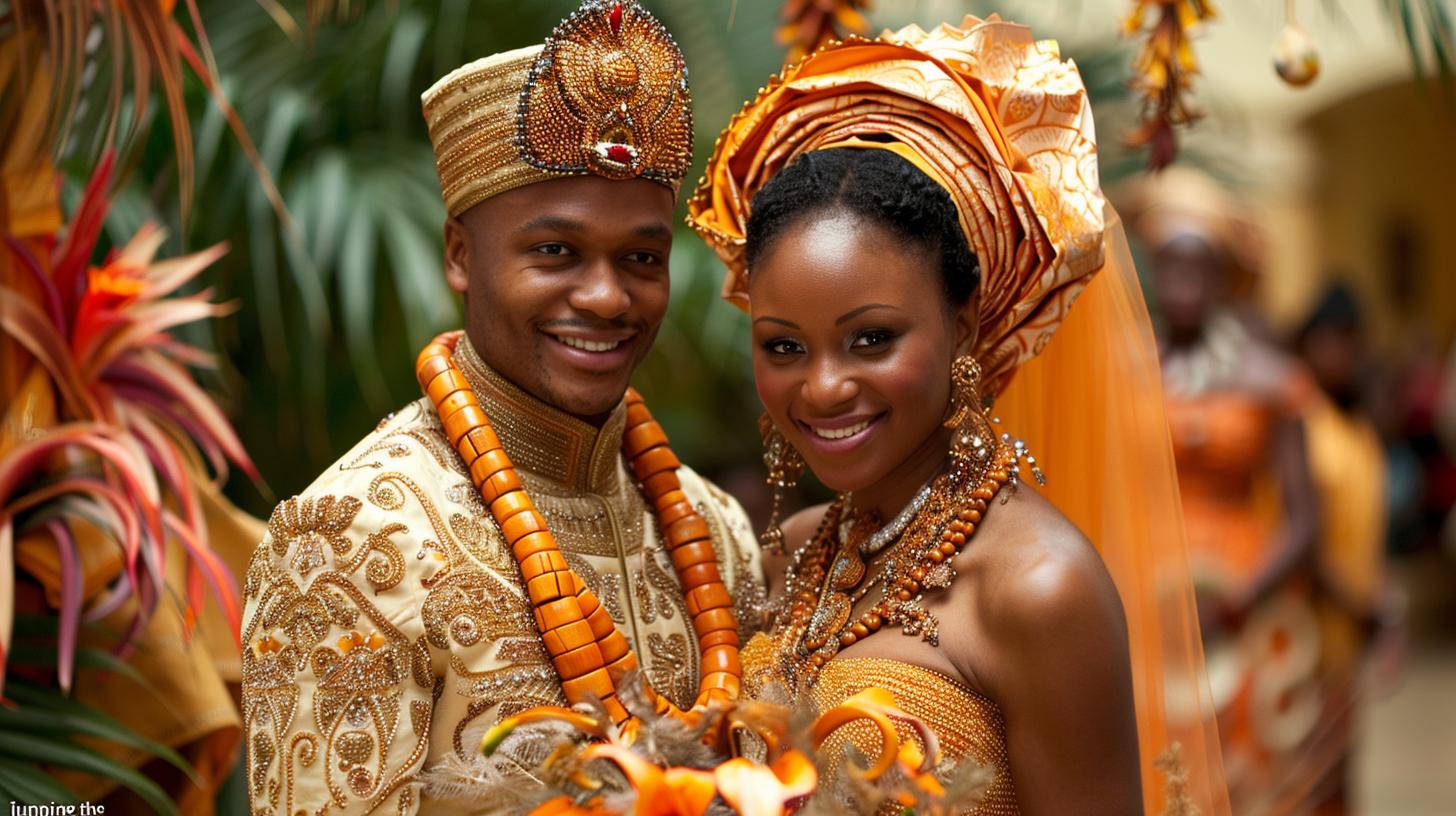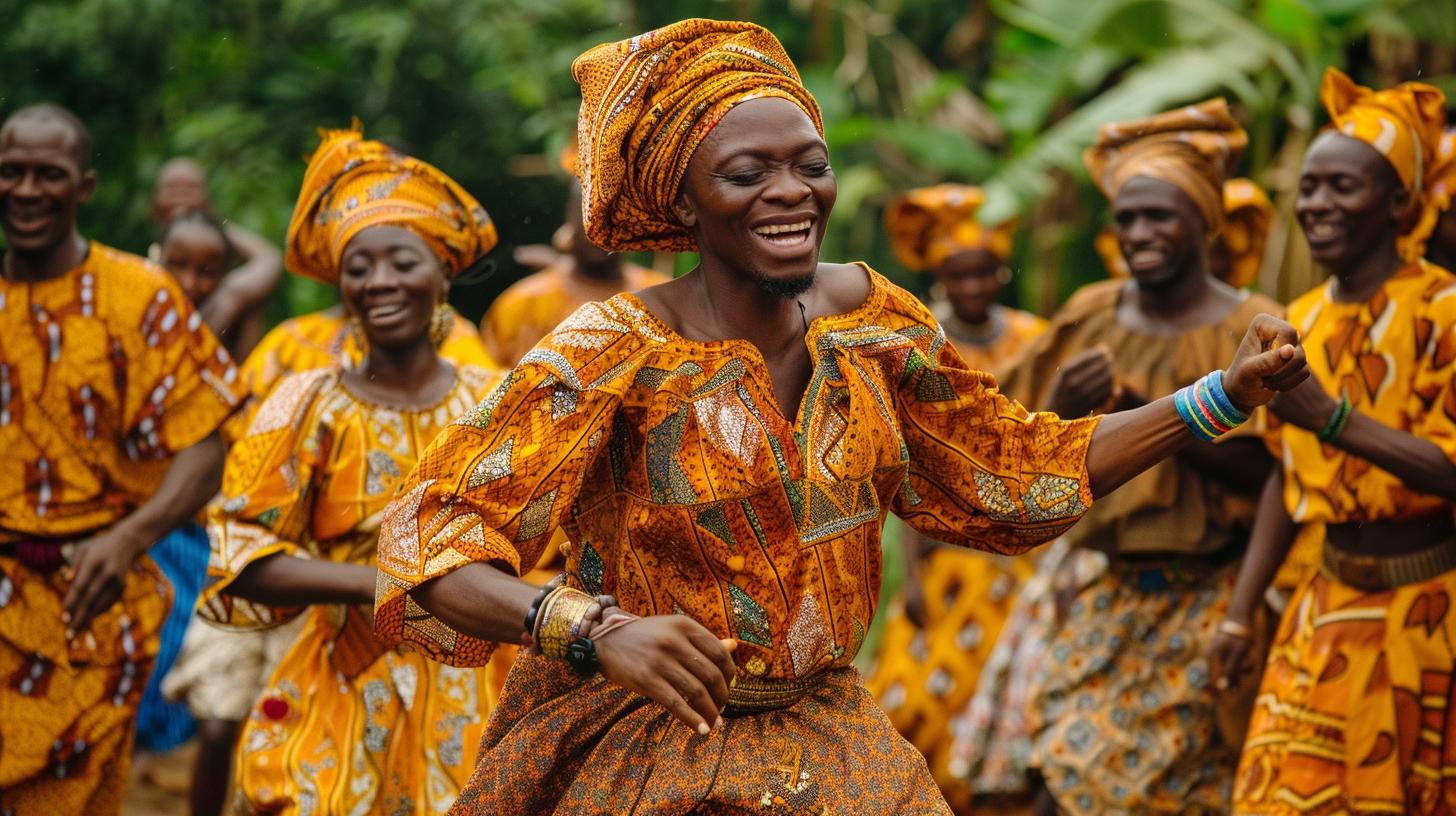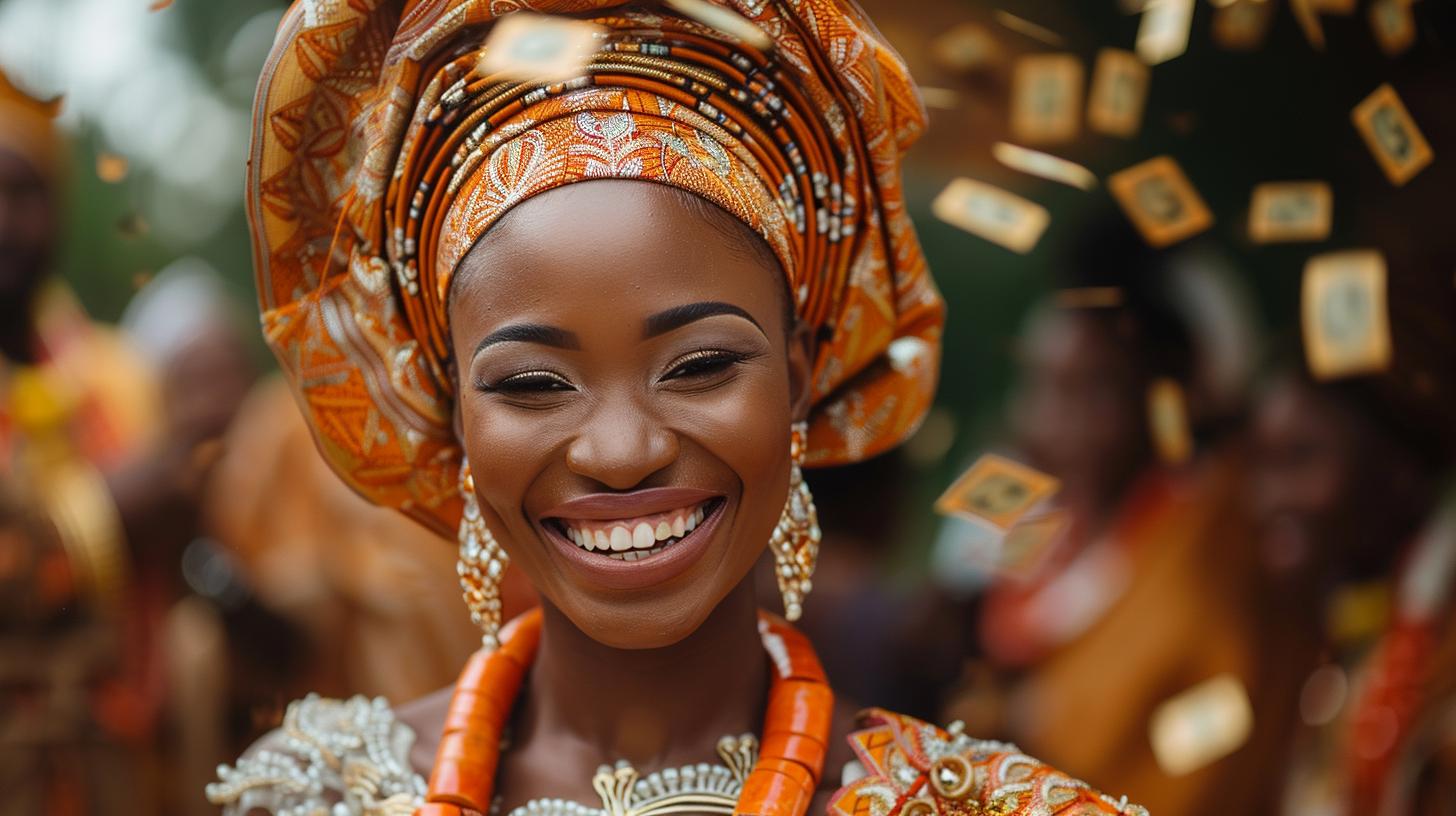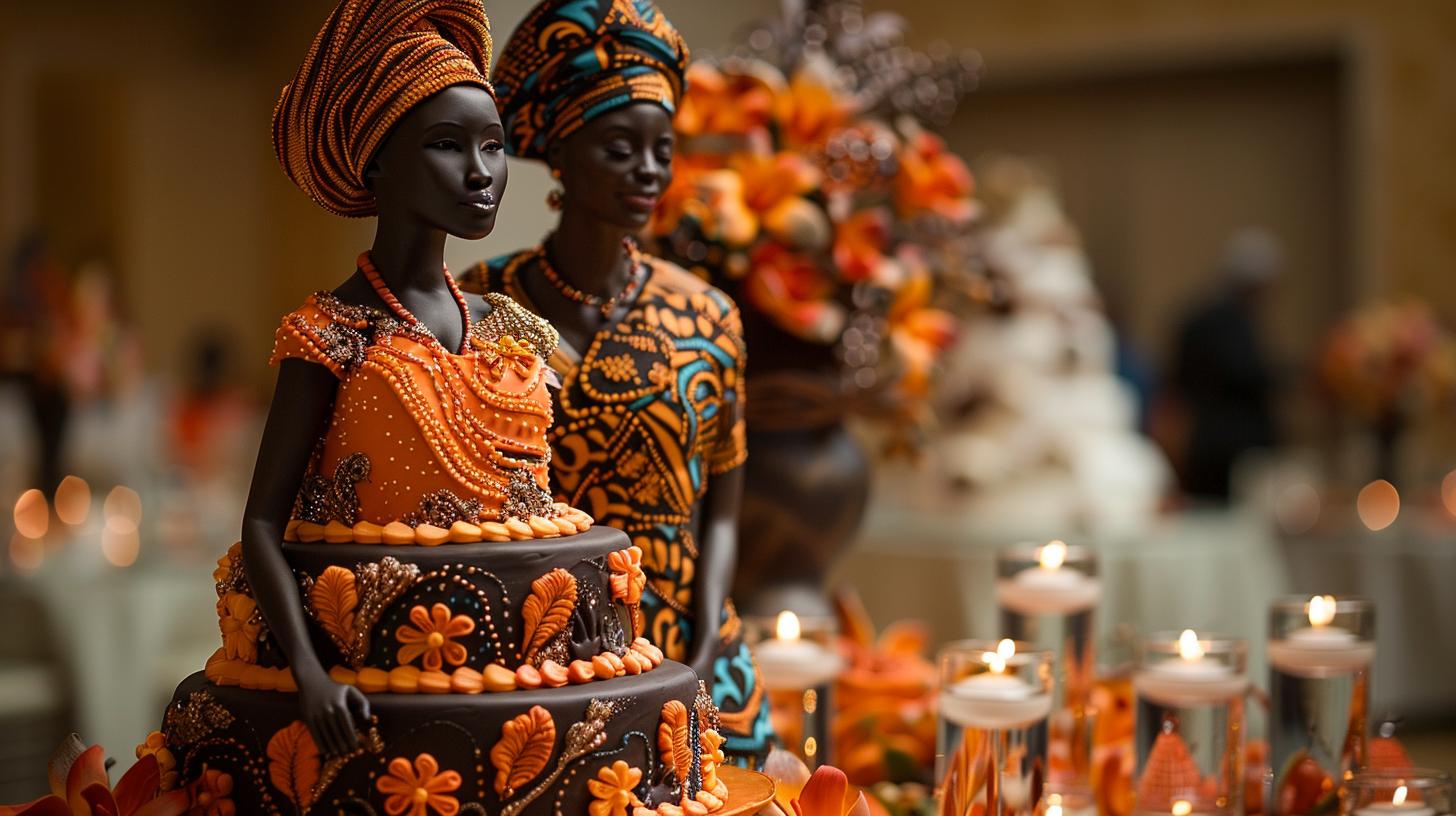What Is A Traditional African Wedding: Exploring Cultural Celebrations in Africa’s Wedding Traditions
Traditional African weddings are rich in culture and tradition. From unique rituals in Ghana to symbolic practices with kola nuts and other elements, these ceremonies showcase the diversity of African customs.
In addition to traditional elements, modern trends are shaping the way couples celebrate their love and heritage, making sure to respect the various wedding traditions that exist across the continent, especially in many African communities.
The bride’s family plays a crucial role in ensuring the success of these ceremonies, setting the stage for a memorable wedding day. The groom’s family also plays an important part, contributing to the overall celebration and joining together with the bride’s family to honor their customs.
African weddings blend history and innovation to create memorable celebrations. The intricate details of African wedding traditions are not only about the couple but also about their families coming together, showcasing unity among the two families involved.
The bride and groom are at the center of these celebrations, with the bride and her family often taking on significant roles, especially during the engagement ceremony. During the engagement ceremony, the families come together to ensure that the rituals are performed correctly, honoring both sides.
Before the wedding, it is essential to have discussions regarding the bride price, which pays homage to the family they are marrying into. This practice, prevalent in many cultures including South African and Yoruba traditions, reflects the respect and acknowledgment of the bride’s family, ensuring that they are involved in the union.
List of African wedding tips and advices
The Significance of Traditional African Weddings
Traditional African weddings hold deep cultural and symbolic significance within many African communities.
These ceremonies are not merely events, but rather manifestations of heritage, unity, and community bonds. They serve as a momentous occasion to celebrate love, family, and tradition. This practice is particularly evident in the marriage process, where the bride and groom’s families come together to honor their traditions.
For the bride, this means not only celebrating her union but also embracing her heritage and the expectations of her family. The bride and her family play an integral role in ensuring the ceremony adheres to the customs of many African cultures, reflecting the importance of family and friends during this special time.
In fact, the groom wears traditional attire that represents his heritage, while the bride wears a stunning wedding dress that symbolizes her family’s values and beauty.
Throughout Africa, weddings are not just about the union of two individuals; they represent the coming together of families, tribes, and communities.
The rituals and customs observed during these ceremonies reflect the values, beliefs, and customs that have been passed down through generations. The family plays a vital role, ensuring that traditions are honored and respected, as the parents will often oversee the arrangements, making sure the ceremony the couple undertakes is culturally appropriate.
In many cases, you will find that the father of the bride is a key figure, guiding and blessing the marriage. The groom’s family also participates actively, creating a bond that extends beyond the couple themselves.
On that day, the two families unite, sharing in the joy and festivities that surround the wedding.
- Weddings in Africa are a reflection of respect for elders and ancestors, emphasizing the importance of heritage and continuity.
- These ceremonies often serve as a means of showcasing cultural identity and traditions, with each ritual carrying its own symbolic meaning.
- Traditional African weddings are a testament to the richness and diversity of African cultures, highlighting the interconnectedness of individuals within their communities.
Overall, traditional African weddings play a vital role in preserving and honoring cultural traditions, while also serving as a joyous celebration of love and unity.
The rituals include various elements like the engagement ceremony and the essential role played by both families. When the couple steps onto the dance floor, it symbolizes their commitment to each other and their families, where the traditional music often brings everyone together in celebration, and they are surrounded by loved ones from both families.
The dance floor transforms into a vibrant display of joy, where guests celebrate not just the couple but also their heritage and community. In South Africa, the wedding festivities can last for days before the wedding, creating lasting memories for the bride and groom.
Rituals and Traditions During African Wedding Ceremonies
The Ceremony of ‘Knock in the Door’ in Ghana
In Ghanaian weddings, the traditional ceremony known as Knock in the Door holds great significance. It involves the groom and his family visiting the bride’s home to present gifts like wine, money, and kola nuts.
The bride’s final consent is crucial, marking the beginning of wedding preparations. During this ceremony, the bride will receive blessings from her parents, ensuring that the union is accepted by both families and celebrated properly according to their dress code.
The ceremony the couple participates in reflects the beautiful blend of customs that define many African cultures, and they make sure to uphold these traditions. It is a day the two families gather, sharing not only gifts but also love and blessings for the future.
The Importance of Dote in African Wedding Engagements
Engagement ceremonies in African weddings often include the payment of a dote, which serves as a way for both families to come together and establish relationships. The dote, whether in the form of money, animals, or food, is a symbol of unity and mutual respect, showcasing the importance of family involvement in the marriage process.
This engagement ceremony is often a vibrant occasion, filled with laughter, joy, and the anticipation of what is to come, reflecting how many African cultures view marriage as a communal celebration rather than just a personal event.
In many cases, the bride’s family and friends are deeply involved in the planning and execution of these joyous events, ensuring that traditions are honored and celebrated.
The Symbolism of Kola Nuts in African Wedding Ceremonies
Kola nuts play a symbolic role in many African wedding ceremonies, representing healing, respect, hospitality, and unity.
Breaking the kola nut at the end of the wedding ceremony signifies unity and is shared among family members, strengthening bonds between families. This act is not just a tradition; it encapsulates the essence of togetherness that is celebrated in many African cultures, especially in West Africa.
The kola nut’s significance is a reminder of the interconnectedness of families and communities during these joyous occasions, as it is often shared among the bride’s family and the groom’s family alike.
Moreover, it is said that the sharing of kola nuts can also ward off bad luck, ensuring a prosperous union.
The Role of Submission and Respect in African Wedding Customs
Respect and submission are key elements in African wedding customs. It is common to see the bride kneeling before her husband as a sign of respect and submission during the engagement or wedding ceremony.
These acts symbolize traditions that honor the union of two families and highlight the importance of both the bride and groom’s families in the celebrations. The bride’s family, particularly her parents, play an integral role in these customs, ensuring that the values of their culture are upheld.
Family they are often involved in discussions about the marriage process, making sure everything aligns with the family’s expectations. In many cases, the bride may not make decisions without consulting her parents, reflecting the strong family ties that characterize many African cultures.
The groom’s family also plays an important part, as they often provide guidance and support throughout the process. They then ensure that the union is celebrated in a manner that honors both families.
Symbolic Elements and Practices in African Weddings
Symbolic elements play a significant role in African weddings, reflecting deep-rooted cultural beliefs and traditions that are passed down through generations. These elements not only add meaning to the ceremonies but also strengthen the bond between the couple and their families.
It is important to understand that the traditions surrounding these weddings can also vary widely, influenced by factors such as region, ethnicity, and the families involved. In South Africa, for example, you might observe unique customs that differ from those in Nigeria or Ghana, showcasing the rich tapestry of African heritage.
As you explore these traditions, you are likely to find that they hold the same underlying values of love, respect, and family unity that are celebrated around the world, including in the United States and beyond.
You might have noticed that many of these practices have originated from the 18th century, evolving through time yet retaining their core significance. For more insights into different wedding types, you can visit African weddings on Weddings Eternity.
Let’s explore some of the symbolic practices commonly observed in traditional African weddings:
The Cultural Significance of ‘Aso Ebi’ Attire in Nigerian Weddings
In Nigerian weddings, the ‘Aso Ebi’ attire holds a special cultural significance.
This traditional practice involves the couple selecting a specific fabric for their wedding guests to wear, emphasizing unity and solidarity among attendees. The coordinated outfits symbolize harmony and togetherness, highlighting the importance of community support and shared values, which is a crucial aspect of traditional weddings.
Many African cultures emphasize the importance of visual representation and cultural identity through attire, making this practice highly regarded. The bride and her family often play a pivotal role in choosing the attire, ensuring that it reflects their heritage, and there are some variations that reflect different regions within Nigeria, such as the Yoruba traditions.
The bride price and other cultural nuances play a significant role in the wedding ceremony, adding to the richness of the event. Additionally, the couple can also incorporate traditional engagement ceremonies that highlight the importance of family involvement, especially with her parents and the bride’s mother playing crucial roles in these rituals.
Incorporating Symbolic Customs such as Jumping the Broom
One of the symbolic customs often seen in African weddings is the tradition of “Jumping the Broom.” This ritual, which has roots in various African cultures, represents the sweeping away of past troubles and the start of a new chapter in the couple’s life.
By leaping over a decorated broom together, the newlyweds symbolize their commitment to facing life’s challenges as a unified team, further emphasizing the bond between the bride and groom. The act of jumping the broom has become an iconic representation of love and family unity, celebrated across the continent.
Many African cultures view this act as a way to honor the past while embracing the future. The couple can also choose to include their parents in this ceremony, reinforcing the connection between their families.
This practice, along with adaptations by African American couples, showcases how traditions can evolve while retaining their core meanings. Such adaptations are often reflected in contemporary wedding ceremonies and receptions, where music and dancing play vital roles in creating a festive atmosphere.
Traditional Ceremonies of Libation and Unity in African Weddings
Libation ceremonies are a common practice in African weddings, where prayers for the couple are made to honor ancestors and seek their blessings for the newlyweds. This ritual signifies respect for the past, gratitude for the present, and hopes for a prosperous future.
By pouring a symbolic drink onto the ground or into a communal vessel, the couple acknowledges their heritage and invites ancestral guidance throughout their marriage. This ceremony often includes the participation of family members, reinforcing the idea that marriage is not just a union of two individuals but of two families.
Many African cultures highlight that the blessings from ancestors are crucial for a successful marriage, and other African communities have their own unique ways of performing these rituals. In regions such as Sierra Leone and Liberia, specific customs are observed that are deeply rooted in local traditions, showcasing the diversity within the African wedding landscape.
It is common practice around the continent to involve the couple’s families, such as the groom with his family, in these sacred moments, ensuring that the union is blessed by those who came before them.
Modern Trends and Innovations in African Wedding Celebrations
Adapting Traditions to Reflect Personal and Cultural Identity
One of the key trends in modern African wedding celebrations is the adaptation of traditional customs to reflect the personal and cultural identity of the couple. By incorporating elements that hold significance to their heritage, couples create a unique and meaningful ceremony that resonates with their individual stories and backgrounds.
The incorporation of Pinterest African wedding ideas has become a popular way for couples to visualize their dream weddings, drawing inspiration from various Nigerian wedding traditions. Many African cultures are embracing modern trends while ensuring that their traditions remain alive, showcasing the vibrant tapestry of the continent.
The bride and her family often play a significant role in this adaptation process, ensuring that the essence of their heritage is preserved. Additionally, the couple can also include contemporary elements such as music and dancing, which are essential for creating a joyful atmosphere during the wedding ceremony and reception.
This blending of styles reflects how couples know each other’s backgrounds and create a harmonious union that celebrates both their individual and shared cultures.
Contemporary Approaches in Celebrating Love and Unity in African Weddings
In recent years, there has been a shift towards contemporary approaches in celebrating love and unity in African weddings.
Couples are exploring creative ways to express their commitment and bond, infusing elements of modernity while still honoring the rich cultural tapestry of their heritage. Throughout the continent, from the West African traditions to those in Kenya and Tanzania, each ethnic group brings its unique flair to wedding celebrations, making it a vibrant display of love and togetherness.
This evolution reflects the dynamic nature of African cultures, showcasing how they continue to grow and adapt while maintaining their foundational values. Many African communities emphasize that while modern trends are embraced, the core values of respect, family, and tradition remain paramount.
In this context, the wedding ceremonies and receptions often feature a blend of traditional and modern elements that resonate deeply with the couple’s backgrounds and aspirations. It is also important to note that health wellness all aspects of planning, such as choosing vendors and planning tools, are essential in ensuring that the day runs smoothly and reflects the couple’s vision.
For more insights into African wedding traditions, visit this page.
.

